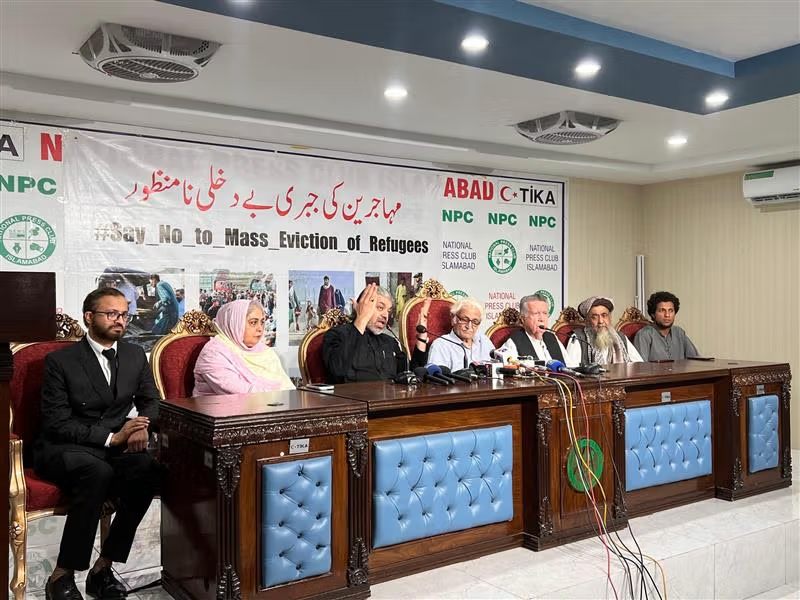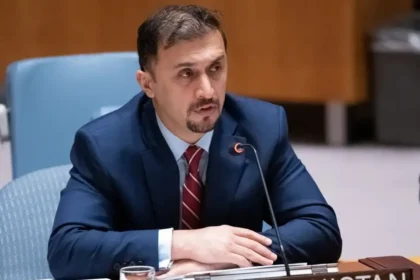RASC News Agency: A coalition of Pakistani politicians, civil society activists, and representatives of Afghanistani refugees convened a press conference in Islamabad, urging the government to immediately halt the mass expulsion of Afghanistani nationals. They called the policy a violation of humanitarian principles and warned that its continuation could lead to a full-fledged humanitarian catastrophe. The press briefing, held on Tuesday, was attended by senior Pakistani political figures including Afrasiab Khattak, Farhatullah Babar, and Amina Jangua, alongside refugee representatives and civil society actors. In a joint statement, participants denounced the forced deportation campaign, describing it as “a flagrant breach of human dignity, Pakistan’s own constitutional values, and international law.” They stressed that women, children, and young people are disproportionately affected and that the ongoing expulsions risk plunging the region into a crisis of historic proportions.
According to the statement, since October 2023 more than 1.2 million Afghanistani nationals have already been expelled from Pakistan. A further 3 million among them holders of Proof of Registration (PoR) and Afghanistan Citizen Cards (ACC) now face imminent deportation. The coalition urged Islamabad to abandon its policy of mass expulsions and instead design “a fair and humane system for categorizing migrants,” one that allows law-abiding Afghanistani residents to pursue legal pathways to residency, work permits, and even citizenship. The statement further emphasized that Afghanistani nationals, over the course of decades, have contributed significantly to Pakistan’s education, healthcare, and commercial sectors. They must therefore be recognized not as outsiders, but as an integral part of the country’s social and economic fabric.
Yet, despite such appeals, Pakistan has set a deadline beginning September 1 for the expulsion of 1.4 million PoR cardholders and some 800,000 ACC cardholders. In parallel, Pakistani authorities have issued new notices requiring Afghanistani nationals without valid visas to leave immediately. Since 2023, more than one million have already been driven out. To worsen matters, Islamabad suspended the extension of visas two months ago, meaning even Afghanistani citizens with legal documentation are now trapped in limbo unable to secure their future in Pakistan. Civil society leaders warn that these measures are not merely administrative decisions but the by-products of the instability exported from Kabul under Taliban rule. With the Taliban’s suffocating restrictions on civil life, its persecution of women and minorities, and its collapse of Afghanistan’s economy, millions of Afghanistani citizens have been compelled to flee. Instead of accountability for the Taliban’s systemic failures, ordinary men, women, and children are being made to suffer further displacement and humiliation.
What emerges, then, is a dual tragedy: a repressive regime in Kabul that forces its people into exile, and a neighboring state that, under political pressure, seeks to wash its hands of those same victims. The voices raised in Islamabad serve as a reminder that the Afghanistani refugee crisis is not simply a matter of border management it is the consequence of Taliban misrule, regional neglect, and the erosion of compassion in international policy.






